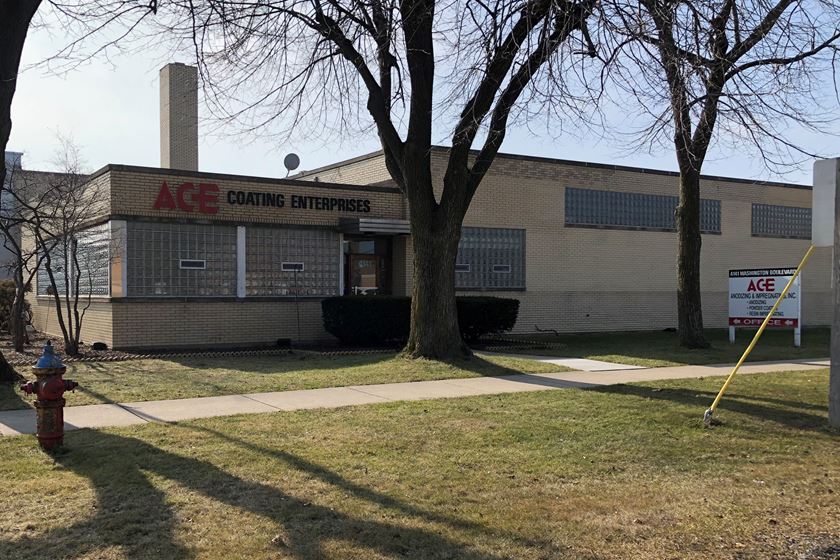A Conversation With...Mike McDonald
VP, New Business Relationships, Prime Advantage Corp.
In an economy where manufacturers are being challenged in intense global competition, mid-sized firms can only ask their suppliers for so much.
#economics
In an economy where manufacturers are being challenged in intense global competition, mid-sized firms can only ask their suppliers for so much. One way to leverage this relationship, however, is by banding together with other businesses in the same situation—through a buying consortium. One example is Prime Advantage, a Chicago-based company with more than 600 member companies, primarily mid-sized manufacturing firms, that leverage the volume of the membership to negotiate discount and rebate programs with 120 endorsed suppliers in more than 100 product and service categories. Recently, we spoke with VP Mike McDonald about the potential risks and rewards.
How might a company save money with a consortium?
MM: Typically, a manufacturing company may manage a few core purchases to ensure competitiveness, quality, delivery and value added services, but it takes a lot of time and resources to do this effectively. By joining a consortium, they have access to pre-negotiated discounts or rebates based on the entire group's volume, with suppliers of products they purchase every day. You gain the benefits associated with putting spends under management for most of the products and services you purchase. There's a lot of efficiency gained at a minimal cost.
We also hold two conferences per year in which members are introduced to our suppliers, so it's an excellent opportunity for buyers to gain access to innovated, cost competitive suppliers that can win their business.
How might finishers benefit from these types of services in areas other than cost?
MM: To begin with, the majority of small and midsized companies felt, and are feeling, the impact of the global economy, and this sometimes means a need to re-examine their supply chains. A lot has happened over the last 18 months; companies have closed their doors, drastically downsized operations, and in some cases shifted their business focus and exited markets. When this happens to your trading partners, companies must ask themselves if they're still partnered with the best players for the long term. Members of buying groups have unlimited exposure to a supply network that's been audited and continuously evaluated to ensure top performance. All of this relates to decreasing risk within your supply chain, and building quality depth within that supply chain across virtually all categories.
What are the risks involved?
MM: The biggest question is one of fit. Specifically, does the buying group have enough of the categories that I, as a manufacturing firm, purchase to make it worth my while? There's no doubt that firms will realize cost savings, it's just a matter of if those savings are in categories significant enough to my business.
Culture comes into play as well. Specifically, if the culture at a company is to build extremely long term relationships with local vendors and they shy away from entertaining new opportunities, a buying group is definitely not the right solution.
What aspects should company owners look for when choosing a consortium?
MM: I think a buying group must offer flexibility to its members, first and foremost. Having two to four suppliers per category versus just one is important. Flexibility in how members interact with suppliers is important as well. For example, Prime Advantage does not negotiate the price a member buys at. We negotiate a rebate or discount program with a supplier that a member has access to. The actual negotiation on price, terms, delivery options and value added services still takes place between member and supplier, ensuring it's a good fit for both.
Secondly, performance evaluations for suppliers are imperative. Part of the role of the buying group should be taking work off your plate. Creating, implementing and managing a supplier evaluation system takes time and resources. Having a formalized process in place, such as a buying group, ensures best-in-class suppliers get in the group and stay in the group. Members should experience the same level of service from suppliers regardless of what they're buying.
What is the biggest reason to join a consortium?
MM: To save significant money, or realize an increased level of service, firms need to become a lot more important to their suppliers. Becoming more important usually means giving them a lot of volume. Buying groups are one avenue, and usually the most economical, to realize these benefits in a short period of time.
RELATED CONTENT
-
Surface Finishing and the Aerospace Supply Chain
The state of aerospace business in the finishing industry.
-
Powder Coating PVC?
Question: I have a product that I am trying to get to market.
-
Acid Zinc-Nickel Benefits Market Share
Stephen Roberts of Columbia Chemical discusses the advantages of adding acid zinc-nickel capabilities to your plating operation.















